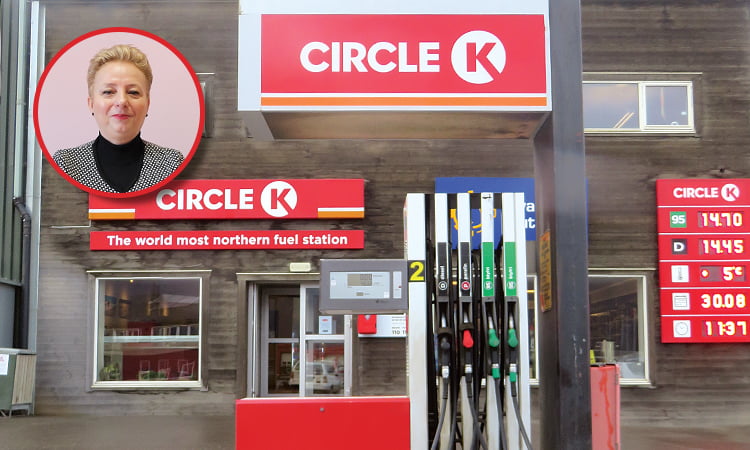Small, medium and large fuel stations are multi-input service facilities. Fuel filling, lubrication, and washing are carried out, and if available cafes and markets are operated. Stations are bright and attractive places with their brand’s captivating colors. We choose our favorite station of our preferred brand. The driver feeling we have in our vehicle should also continue at the station. Especially if we are the driver of the vehicle we aspire to, enjoying a music-filled drive and a pleasant station stop afterwards brings happiness. Exploring the stations, comparing them to those in our own country, and experiencing the brand’s presence on unfamiliar roads abroad is like being an inspector. During my trip to the North Pole at 81 degrees latitude, I visited the world’s northernmost fuel station at Longyearbyen, the capital of Svalbard. Alongside my new 5 polar bear friends and the experience of visiting the engine room of our expedition vessel, fueled with 20 percent biodiesel and perfectly implementing the requirements of sustainable living, visiting the local fuel station left a pleasant memory.

Each station should be managed sustainably, striving for continuous improvement in environmental, social, and governance indicators. Fuel stations have significant impacts, especially in terms of carbon footprint and water footprint. Sustainable production, consumption, and service should be achieved to reduce the environmental and human health impacts and risks of the station. The best waste-energy-water-supply chain management should be implemented with the most advanced technologies to ensure resources efficiency and control the life cycle. In essence, sustainable living should be promoted at the station.
Proper management of wastewater, paper, food, packing waste, and waste lubricants generated after oil changes is crucial for achieving almost zero waste management at the station. Waste should be separated and collected for processing within the legal chain to be incorporated into the circular economy. Energy management options prioritize energy efficiency, on-site renewable energy generation and consumption such as solar power, or the use of electricity from renewable sources. In addition to visible electricity consumption, fuel stations also have high digital energy consumption. In the supply chain, purchasing choices can be made with the goal of minimizing resource consumption while maintaining customer hygiene and comfort standards. Liquid soap, hand sanitizer, water, toilet paper, paper towels, and napkins can be consumed with minimum usage. Sensors, lightning equipment, software, and electrical appliances at the fuel station should be selected to be long-lasting, repairable and energy efficient. Moreover, products with minimal packaging should be offered whenever possible.
Fuel stations serve as educational spaces in the economy of green, circular, and digital transformation, with their societal impacts. While providing sustainable living through their applications to customers, fuel stations can also increase their social impact through station awareness and consciousness-raising campaigns using mediums such as posters, videos, loyalty programs, and rewards. When the reflection of projects conducted with civil society becomes visible at fuel stations, these impacts will increase. The increasing number of female employees at the fuel stations holds significant importance in customer loyalty and social indicators.
In the 250th anniversary of the establishment of Istanbul Technical University (ITU), at our certified green campus we organized the VIII. Istanbul Carbon Summit on May 2, 2023. Our event received media support from Lubricant World magazine. This year, Petrol Ofisi joined us alongside our longstanding partner Shell, our first companion from the sector for low-carbon economy. Shell’s presence at our summit, coinciding with their 100th anniversary in Türkiye and our Republic’s 100th anniversary, was truly fitting. I extend my greetings to Shell, led by Shell Türkiye Country President and esteemed ITU alumnus Ahmet Erdem, and particularly acknowledge their female employees, as we work together towards decarbonization.
I greet DB Tarımsal Enerji and Kolza Biodiesel, who provide biodiesel as a blending component for the industry, and Petronet, who smartens our stations with fuel automation and management system solutions, the companies offering low-carbon footprint fuel supply and station carbon footprint reduction. Their contributions in the field are undeniable. My final greetings go to all organizations working towards sustainable living in the stations of our beautiful country. May you be blessed with abundance and may your services have low-carbon footprint.




